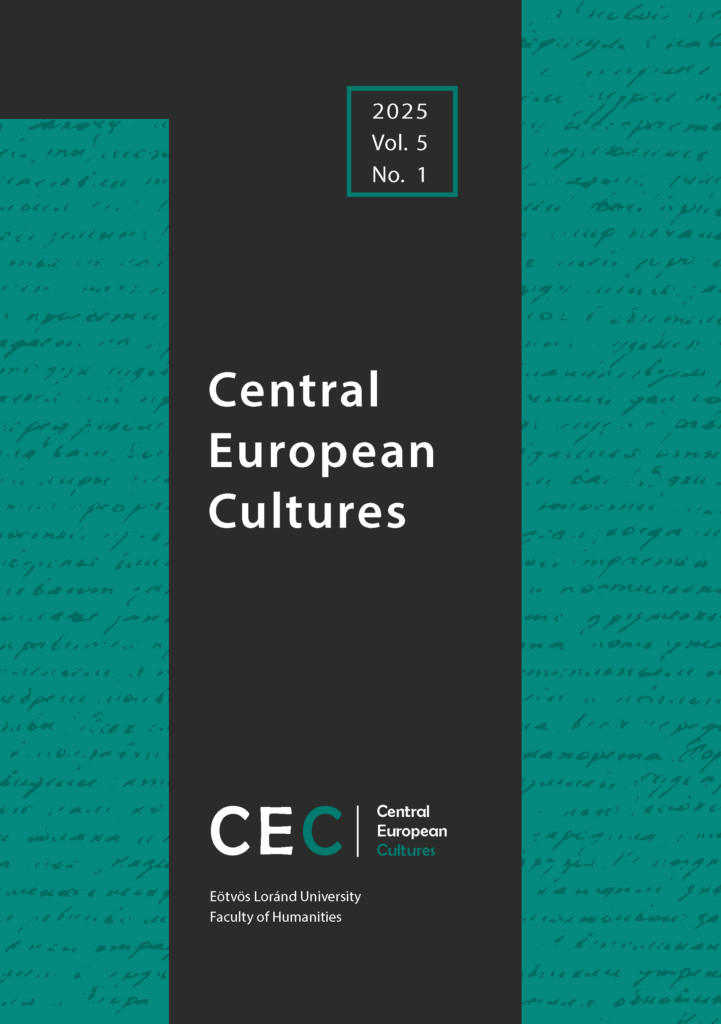Central European Cultures. Representing Crisis in Early Modern Literatures from Northern and Central Europe

The thematic issue Representing Crisis in Early Modern Literatures from Northern and Central Europe (Eds. Lucie Storchová and Kristi Viiding) of the journal Central European Cultures presents ten selected and revised papers from the Representing Crisis in Early Modern Literatures conference held in Tallinn on 21st and 22nd September 2023, jointly organized by the Under and Tuglas Literature Centre of the Estonian Academy of Sciences and the Institute of Philosophy of the Czech Academy of Sciences.
Its main aim is to shed new light on the ways in which various crisis phenomena in nature and society were reflected in texts written in the multiethnic and thus multilingual regions of Northern and Central Europe in the sixteenth and seventeenth centuries. These regions were strongly influenced not only by the German Protestant intellectual tradition (including natural philosophy, history, astronomy, medicine, law, anti-Ottoman works etc.) but also by the other religious, political and legal discourses of the time. The most recent research on other regions of the early modern world shows the benefits of this broad and convergent approach. During the discussions at the conference, in addition to the strong influence of Protestant thought on the early phase of crisis representations, several other trends emerged that subsequently influenced the selection of studies for this thematic issue. These include, for example, that the literary discourse on crisis phenomena intensified significantly between 1590 and 1630 and that although the number of vernacular writings continued to increase, the Neo-Latin literature and classical models were indeed of great importance to crisis works.
Our perspective in this thematic issue thus differs from earlier postwar research on the global “General Crisis” in the seventeenth century which, in the 1990s, became a widely accepted concept in early modern history. Crisis has been characterised as a process in which previously stable and functioning conditions start to dissolve and the new disruptions cannot be overcome by traditional means but require structural changes and new paradigms.5 In any case, interpreting important phenomena and movements in the early modern period (such as humanism) as a reaction to moral, social, economic or ecological crises can be considered a most fruitful approach. Despite all this, surprisingly little research has been done either on local imageries and reflections of crisis as part of early modern literary and cultural exchanges or on the rhetorical tools that were used to describe these crises. The articles in this issue therefore focus on microprobes into the imagination of the time, its circulation and transcultural sharing.
Using specific case studies, the authors show how ideas about crisis have circulated and changed over time—whether the main focus is on the political impacts of these images (Rasmus Gottschalk, Jakub Wolak, and Astrid Nilsson) or widely shared ideas about the decline of the physical world order and the coming end of the world (Gábor Petneházi, Marcela Slavíková, and Lucie Storchová), or personal coping with crises and models for describing and communicating such coping strategies (Maria Łukaszewicz-Chantry, Kristi Viiding, Marta Vaculínová, and Aira Võsa).
Taken as a whole, this thematic issue thus answers a number of questions. First of all, in what political and social contexts have crises been thematized in this specific region? Our further aim was to explore the variety of media, genres and discourses related to imageries of crisis and how they changed in the period concerned. Thus what period discourses were associated with images of crisis, and how did these discourses interact in individual literary texts? Did the perceptions and portrayals of crisis differ in Latin and vernacular literature? How did transculturally shared representations interact with regional literary traditions, both older and those influenced by Protestant thinking? Several studies also address the question of how crisis phenomena were represented visually, an enriching perspective toward an otherwise heavily text-oriented Protestant tradition.
Lucie Storchová, Kristi Viiding (Ed.) (2025). Representing Crisis in Early Modern Literatures from Northern and Central Europe. Central European Cultures. (3−237). Budapest: ELTE